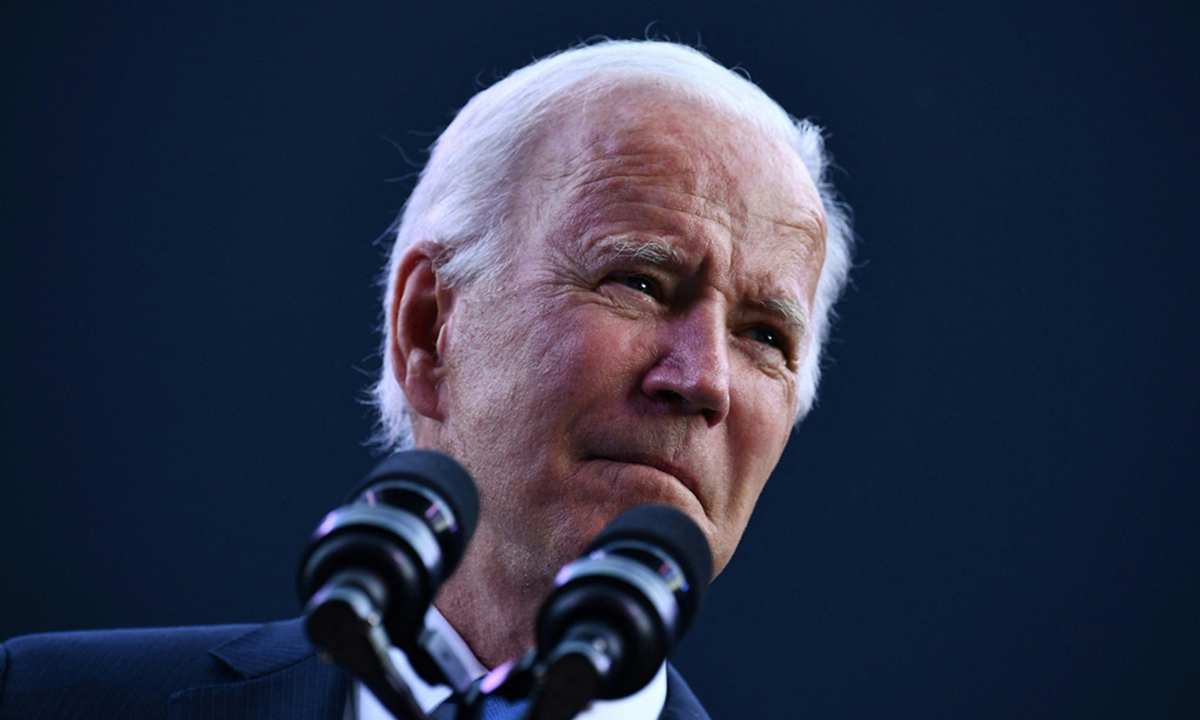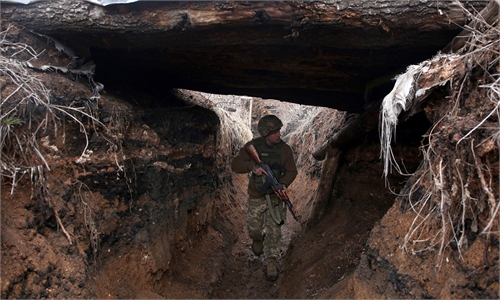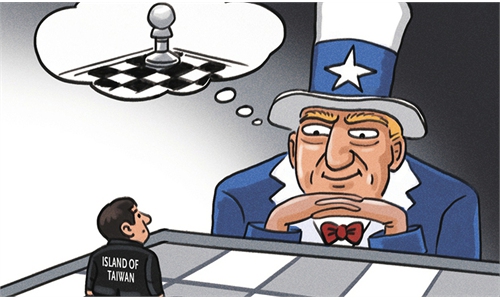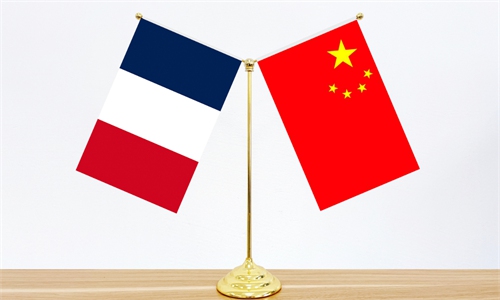
Joe Biden Photo: AFP
US President Joe Biden said in an address on Tuesday that "an invasion remains distinctly possible." His remarks came just several hours after Russia's defense ministry said that a grouping of troops near Ukraine are returning to their bases after completing military drills, a development that has been widely seen as an apparent sign of de-escalation of tensions between Russia and Ukraine.
It is rather clear that both Russia and Ukraine have no intention of eagerly going to war, but Washington, with its dramatic warnings and performance art, has still been trying to make the world believe that World War III is imminent. That only makes sense if the US has much to gain from such a dire scenario, and it does indeed.
Behind the US' hysteric hype about a potential war in Ukraine are its intentions of satisfying the voracious appetite of its military-industrial complex, which stands to gain the most from a potential war. That's why US officials are sparing no efforts in misleading Russia and Ukraine into a military conflict.
If a war breaks out, the Russian economy would face enormous sanction pressure from the West, while Ukraine would also suffer. And the US would end up being the biggest beneficiary of the war. Particularly, US defense contractors and arms makers stand to gain the most from any conflict in Europe.
The US has provoked more wars than any other country since the World War II. Whenever there was a military campaign, the American military-industrial complex made a fortune. Even if the Ukrainian war doesn't break out, vested interest groups in the US defense sector have still got business opportunities from regional tensions. They don't even care to hide their greed. For instance, Raytheon CEO Greg Hayes said in late January he saw a potential war over Ukraine and security risks as "opportunities for international sales."
Beyond the boost for a US arms sales, even though a war has not occurred as the US repeatedly warned, continuing tensions in Europe have already precipitated capital outflows to the US financial market, which is of great help for the US economy, which is grappling with a series of self-inflicted woes.
Due to skyrocketing inflation, expectations for interest rate increases by the US Fed have been on the rise, piling up pressure on the US' debt and stock markets. If the US capital market runs short of liquidity amid a tightening monetary policy, there is a risk of systemic economic crisis in the US.
Against this backdrop, the US' attempt to instigate a conflict in Europe cannot be a coincidence. Because only by attracting global capital flows to its home turf can the US bond prices be stabilized and the US economy survive.
Fundamentally speaking, US foreign policy has been hijacked by the vested interest groups in the defense sector that is relentlessly and recklessly pursuing huge profits from bloody wars. Without war, the US military-industrial complex would be a huge financial burden given the already high US fiscal deficits. The US needs wars in the rest of the world to support its military-industrial complex.
Such greed is not only deplorable but also dangerous to the world. The US government, as powerful as it seems, appears to have been hijacked by these interest groups, but the world cannot afford to allow them to continue profit from misfortunes around the globe. Vigilance is required and hopefully will help form a formidable counterforce to such evil deeds.



